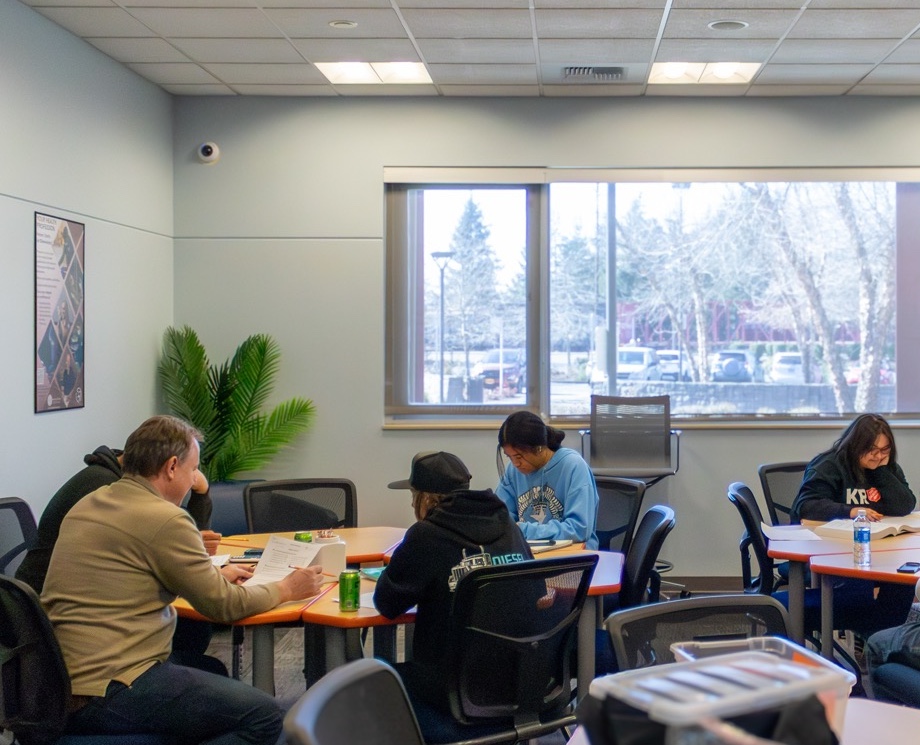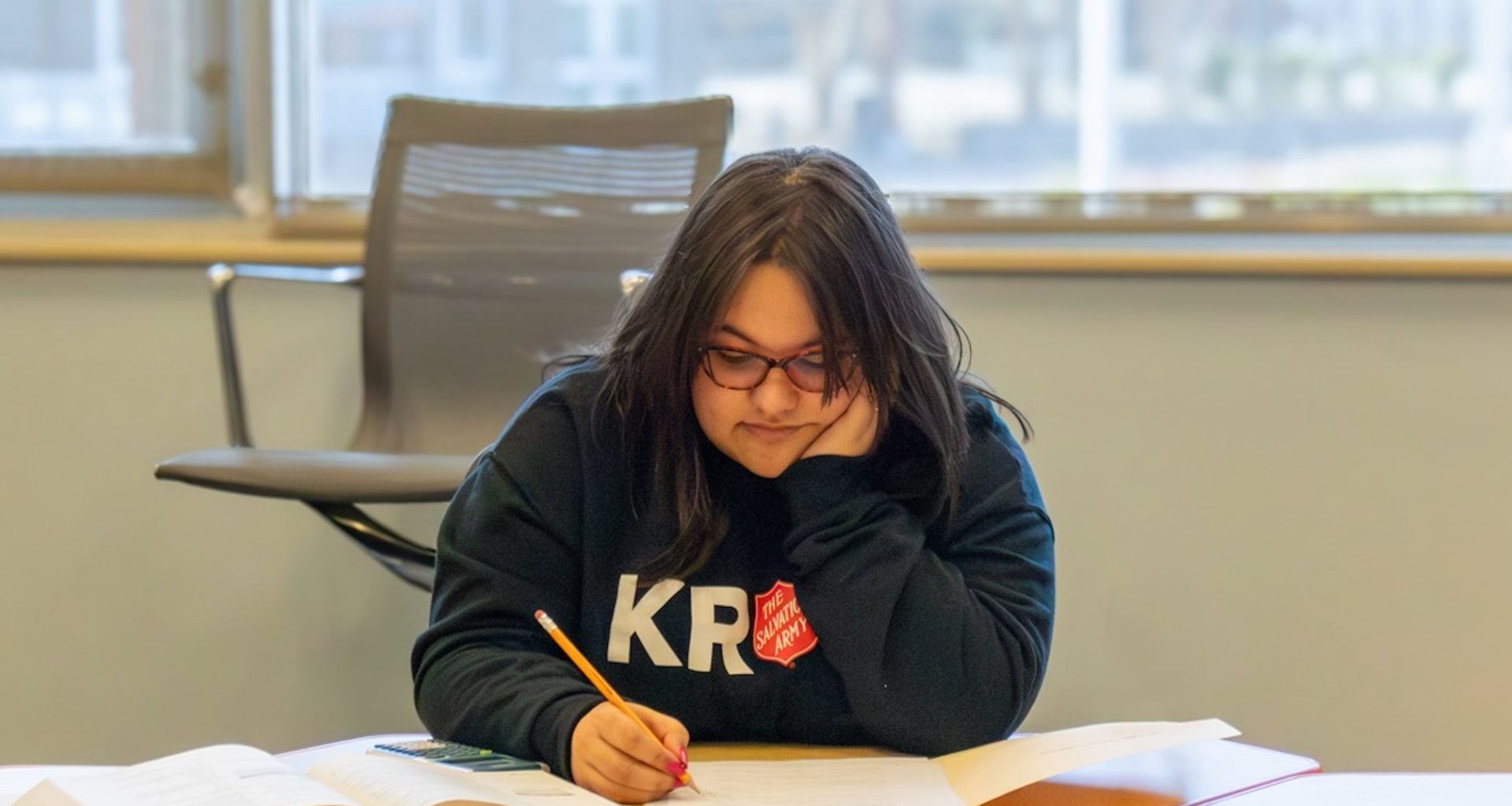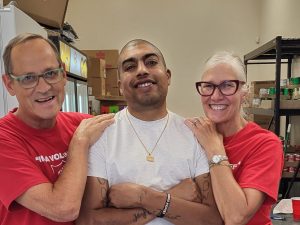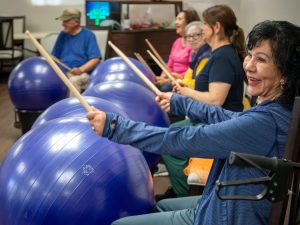Onsite GED center meets youth where they are, making education accessible.
Seventeen-year-old Moxie Riot missed passing her GED test by just six points. It was the math section that got her.
“I have all but that one test done,” said Riot, a student in the Salem (Oregon) Salvation Army Kroc Center’s GED program, which launched in September 2023, with just a few students. As word about the program spread, it filled up, and today it’s at capacity with 15 students.
The Kroc Center partners with Chemeketa Community College in nearby Hayesville, Oregon, to offer the program.
“It’s as good here as at the community college,” said instructor Mitch Smith, who also teaches at Chemeketa, adding that the Kroc Center offers the students food and recreation when they’re done with class, which meets Tuesday and Thursday afternoons for two hours, with tutors available Monday through Thursday from 4:30–8 p.m.
The Salem Kroc Center, true to Joan Kroc’s vision, sits in an underserved community, looking to open growth opportunities for people of all ages, including educational opportunities.
In the Salem-Keizer school district—the second largest in Oregon—almost half of enrolled students did not attend school regularly during the 2022–2023 school year (attending more than 90 percent of their enrolled school days), according to the Oregon Department of Education. The figure is 10 percent lower than the state average.
“The GED program is targeting the exact kids we want to serve,” Kroc Center Director Tony Frazier said. “It’s right for the community.”
“These kids are brilliant. They just learn differently than other kids do.”
Tony Frazier, Kroc Center Director
Frazier said he has a passion for helping youth, especially those lacking a direction in life.
“Serving this demographic is my absolute favorite, my happy place,” he said. “The reason is, they’re hard to serve. Not very many people want to do it. They’re hard to motivate, hard to keep engaged. Sometimes they’re hard to find.”
Frazier found them, though.
After the COVID pandemic, when in-person school had resumed, Frazier noticed high-school-age kids hanging out at the Kroc Center during school hours.
When he talked with them, they told him they had no intention of returning to school.
The school closures during COVID pushed a lot of students out of the system, including Riot. The pandemic came at a crucial time for her, during the transition from middle school to high school. She finished middle school with good grades. Then she had to deal with online courses.
“It was crazy—I couldn’t stay awake,” she said. “I tried for the first quarter. I tried so hard. I think I had an F in every class. I could not do it.”
So she quit. After the pandemic, Riot did not return to school; however, she did get involved in Kroc Center activities, and staff recognized her artistic ability. Eventually the center hired her to work with kids in its Discovery and Game rooms.
She was the first to sign up for the GED program.
“I found out it was happening here,” she said. “And I was like, ‘Oh my gosh, I have to.’ Well, I don’t have to, but I wanted to… I knew I was going to get my GED. That was the plan all along. But it was so unbelievably convenient.”

Riot said her mom had been looking for a GED program before they found out about the one at the Kroc.
“Most of them you have to be in a school or be 18,” she said.
Frazier said the Kroc Center sought to remove those barriers, and others, along with offering incentives, like meal passes and Kroc Center membership.
The center’s program is free, with no minimum reading and math requirements, and it’s accessible. Frazier used to have to direct kids across town for a GED program, and he said most just wouldn’t bother.
“We’re just trying to remove every barrier we can,” he said.
So far, 10 students have completed the course and passed their GED. Frazier said these are kids who otherwise would not have gone back to school to finish their education.
“These kids are brilliant,” Frazier said. “They just learn differently than other kids do.”
Looking ahead, Frazier is planning an internal workforce development program, centered around Oregon employability skills, for Kroc Center youth, those on a career path instead of the college path.
It’s all part of the Kroc Center’s vision to create opportunities.
“It’s a privilege,” GED student Fernando Gage said. “I’m glad I got into the program.”
Do Good:
- Caring Magazine is a magazine from The Salvation Army for people who care. People like you! Subscribe to the list and join 25k+ people who care. You’ll get weekly inspiration in the Do Good Digest sent right to your inbox.













